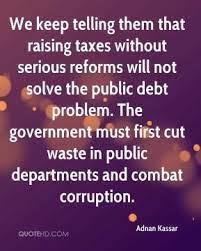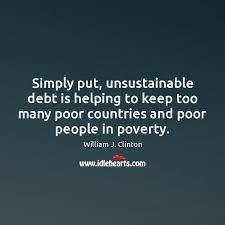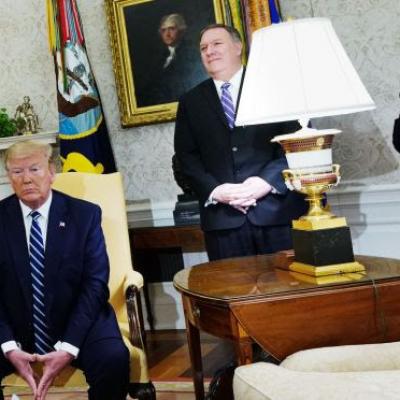Debt
-
Debts and the 2023 General Elections
- By solomon2day
- On 27/12/2022
- In Solomon's Column
Nigerians are now very worried and are asking several questions over the present debt situation of the Federal and State governments.
In recent years, the government at all levels have failed to exhibit a high sense of responsibility in managing borrowed funds. Are the incurred debts at a sustainable level?
Nigerians wish to know.
Obviously, the heavy indebtedness of a number of states is a reflection of the major reason why those in authority occupy public offices.
Indeed, the lack of prudence in the management and utilization of borrowed funds and the disability of measures that will guarantee transparency are two major characteristics of debt management in the country.
The country's debt profile is disturbing, while the capacity of the different levels of government to manage their debts is questionable.
Most importantly, the domestic debt data of all the states ought to be made public for Nigerians to know the financial status of these states.
This will go a long way to determining the fate of preferred candidates for elective positions in the 2023 general elections.
Sadly, millions of Naira have been frittered away to promote the activities of cultists, hoodlums and other categories of criminals by Those-in-Charge, as can be seen in the Olorunsogo, Molete, Felele, Scout camp and other communities in Ibadan, Oyo state, Nigeria, just as the crowd at available sources of doubtful sources of water establishes the fact that development is still a mirage.
Note- The liability value of appendages of serious candidates for elective offices in the 2023 general elections in the guise of political party candidates is not only a disservice to democracy, but also a threat to the electoral process.
-
Preferable Choices
- By solomon2day
- On 07/12/2021
- In Solomon's Column
Foreign loans obtained for capital expenditure by Governments could be applied for domestic economic development.
However, this must be in tandem with a well-drawn-out program of action.
Foreign loans primarily serve the needs of the creditor economy and systematically neglect the domestic economy of the debtor country.
It is instructive to note that Japan obtained loans between 195 to 1914, externally, and was at liberty to use the funds in accordance with the dominant ideas of national economic development.
Interestingly, these foreign loans were a relatively minor and not a major source of capital for the Japanese economy as a whole.
During this period, Japan was able to direct between 12 percent and 17 percent of its national income into capital formation.
From the 1920s Japan began to receive some form of direct investments from abroad, while the government borrowing from abroad visibly ceased.
The same sequence applies to a number of other countries that have attained a substantial degree of development.
Indeed, foreign loans could be a suitable method of laying the foundation of a country's economic development in the form of public services and social overhead capital.
In the same vein, it is almost possible to substitute foreign funds for domestic saving to the extent that the country's consumption is increased and little or no addition is made to the rate of accumulation.
In Nigeria today, the absence of motorable roads, functional waterworks, and regular electricity supply across the states have all combined to hinder direct foreign investments. Political impediments coupled with induced security situations have given prominence to real estate, land grabbing, indiscriminate taxation, the importation of fairly used vehicles, and hard drugs as preferable choices for economic development.Also read-Legalizing Crime and Criminality
-Landlords and Tenants Associations, Crime and Criminality
-Law Enforcement: The Reactionary Approach
-Government Workers-A Subject of Debate











